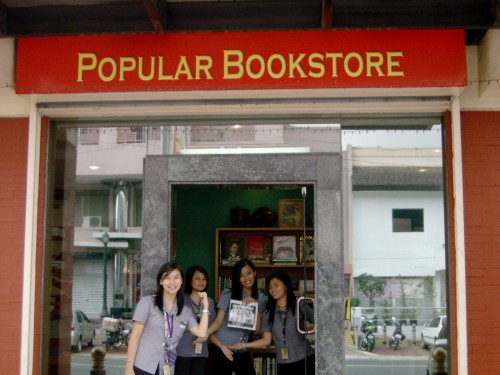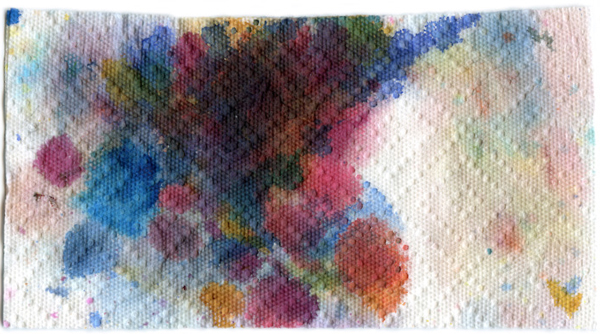Matthew Simmons
Matthew Simmons lives in Seattle.
Matthew Simmons lives in Seattle.
“My rap name’s Director’s Commentary”: A Mixed Ape by Giant friends NewVillager here. (Songs ranted over by some sort of maybe crazy person. First person to guess the ranter gets a couple of random galleys from my desk.)
File this under “Making Shapely Fiction”: A Tea Party protest attracted Birthers and Libertarians and Constitutional “Originalists” and Anti-Abortion Activists and Christian Homeschooler Dominionists and Second Amendment Loyalists and Anti-Immigrationists and Anti-Socialists and Race-Baiters and Mainstream Republican Activists and people who want the government to keep its hands off their Medicare AND people who think they are Taxed Enough Already. If their message seemed “cohesive,” (see also this, this, or any of these) maybe that was because they had a corporate-funded lobby and an entire news network dedicated to shaping the message into a cohesive one for them.

A month or so ago, I was asked to write a response to the work of John Cage. And then, 21 other authors and I stood in a big circle around a crowd and read our responses. I thought I’d share mine with you.
3 OBSERVATIONS ON SILENCE (FEATURING HARPO MARX)
1
Imagine a long line of people, and a very important person—possibly with his wife, possibly with his security, possibly he is a she. The very important person is walking down the long line of people shaking hand after hand. Three quarters of the way down this line of people, the very important person comes upon a man in an overcoat and top hat. When the very important person sticks out his or her hand, the man in the overcoat and top hat does not in return stick out his own hand, but instead lifts his leg and deposits it in the hand of the very important person. READ MORE >
To further the conversation, here are two things about “community” and bookstores that have influenced my thinking on the subject.
First, above, is video of a talk by the amazing Matthew Stadler. In it, he discusses the future of the brick and mortar bookstore. It’s the source of the title for this post.
The second is a short essay from my local alt-weekly, The Stranger. In it, Books Editor Paul Constant takes all the talk of community building and asks someone to go ahead and put up (or rent out) an actual building:
So here’s what we need: a fairly large bar, nothing fancy, not too expensive. Open almost all the time. Maybe a typewriter here or there for ambience. Ratty books on shelves. Some sort of an area that can easily become a stage. Chairs. Tables. No TV, no Wi-Fi. No nattering blogs or flickering videos to distract from the words you’re writing, speaking, or reading. A jukebox stuffed with Edith Frost, the Magnetic Fields, and the Pogues. That’s about it for the hardware.
Both are on the right track, I think.

First a note about my perspective. I’m a bookseller. I’ve been a bookseller for almost 12 years. I’ve worked as a floor clerk, in an author events department, in Kids Books, claimed publisher coöp, cashiered, and now spend most of my time behind the scenes writing ads and newsletters and signs.
I know the customers referred to on that sign. I’ve dealt with them, too. I know retail work can be very difficult, and that in the face of a lack of empathy from customers who have never themselves worked retail one can lose one’s own empathy. I also know the folks who come in, ask you to help them look for a book they only have a little bit of information about (a partial title, a remembered book review from a two-month old magazine), follow you to the shelf, pull out their phones, and reward your diligence by scanning the bar code and placing an order through Amazon. Right there. With you watching. READ MORE >
Updated. (Sorry.)
Had he not committed suicide in 1970—and not died of old age in the last few years—he’d be 75 today. If you don’t own Spirits Rejoice, there is a hole in your record collection.

Paper Towel, June 3, 2011, Jeffrey Simmons
I have a small file cabinet under my desk that has in it scraps of paper with notes—on notebook paper, printer paper, index cards, Post-It notes, and even (yeesh) napkins. Early drafts of stories—from a time when I wrote everything long hand first, and then typed them up—are in there. Little bits of research that I printed out, glanced at, and then decided to ignore. Pictures I took out of magazines.
There’s another pile on my bookshelf that’s twice the size of my mid-sized cat.
Why am I keeping it all? I thought about throwing it away, recently, READ MORE >